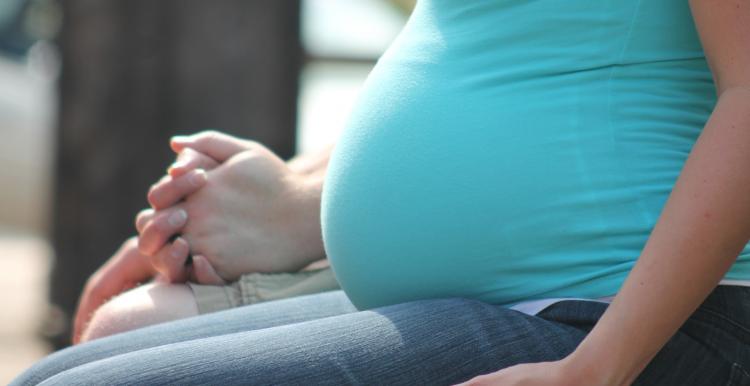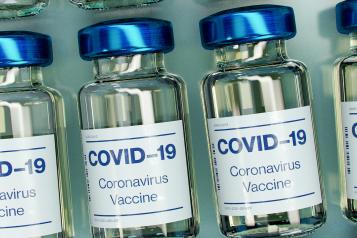Maternity support during Covid-19

Last updated 27 July 2021
Restrictions related to the Covid-19 pandemic in England have been removed from 19 July 2021. To check the latest Government guidance please visit Gov.uk.
Please contact your own midwife or doctor or visit your local hospital's website for the most up to date information on maternity care in your area.
You can also visit the BaNES, Swindon and Wiltshire Clinical Commissioning Group’s (BSW CCG) website for more information.
If you're pregnant, it's important you:
- wash your hands regularly
- take particular caution when meeting anyone outside your household or support bubble.
- stay away from anyone who has symptoms of coronavirus
You still need to go to all of your pregnancy (antenatal) scans and appointments unless you're told not to.
Here are answers to common questions about pregnancy and maternity care during Covid-19.
How does coronavirus affect pregnancy?
According to the NHS, it's expected that most pregnant women will experience mild or moderate cold or flu-like symptoms if you have Covid-19.
However, a small number of pregnant women can become unwell with Covid-19. Pregnant women who catch Covid-19 may be at increased risk of becoming severely unwell compared to women who aren't pregnant, particularly in the third trimester.
The Royal College of Obstetricians and Gynaecologists say that some studies have shown that there is an increased risk of giving birth early for pregnant women who become very unwell with Covid-19.
If you're pregnant and have an underlying health condition, such as asthma or diabetes, there is a further risk that you may be more unwell if you develop the virus.
Although the advice to shield has now been paused, if you have significant heart disease, congenital or acquired, you are considered extremely vulnerable and may wish to consider taking extra precautions by following government advice and guidance.
What effect will Covid-19 have on my baby if I am diagnosed with the infection?
Current evidence suggests that if you have Covid-19 it is unlikely to cause problems with your baby's development, and there have been no reports of this so far.
There is no evidence to suggest that Covid-19 infection in early pregnancy increases the risk of miscarriage. The Royal College of Obstetricians and Gynaecologists say that transmission of Covid-19 from a woman to her baby during pregnancy or childbirth is uncommon.
Can I receive the Covid-19 vaccine if I am pregnant?
Yes, the Joint Committee on Vaccination and Immunisation (JCVI) has advised that pregnant women should be offered Covid-19 vaccines at the same time as people of the same age or risk group.
If you are pregnant and have been offered a Covid-19 vaccine, the decision whether to have the vaccination is your choice.
You may wish to discuss the benefits and risks of having the vaccine with their healthcare professional and reach a joint decision based on individual circumstances. However, as for the non-pregnant population, pregnant women can receive a Covid-19 vaccine even if they have not had a discussion with a healthcare professional.
Anyone who has already started vaccination and is offered a second dose whilst pregnant, should have a second dose with the same vaccine unless they had a serious side effect after the first dose.
Resources to help you make your decision
- The Royal College of Obstetricians and Gynaecologists - information help you make your choice about whether you’d like the vaccine or not.
- Public Health England - information for women of childbearing age, currently pregnant, planning a pregnancy or breastfeeding.
- The Oxford University Hospitals NHS Foundation Trust - a video series on the Covid-19 vaccination and pregnancy.
Keeping yourself and others safe
With restrictions ending across the UK it is important that you take particular care when meetingupwith your friends and family. You should read the government guidance but some steps you could continue to follow include:
- Meet outside rather than inside where possible.
- Continue to minimise the number of people you meet within a short period of time to limit the risk of spreading coronavirus.
- Get tested twice a week for free and isolate if you test positive for Covid-19.
- Avoid contact with someone who is displaying symptoms of coronavirus, such as a high temperature and/or new and continuous cough and/or a loss or change to their sense of smell or taste.
- Get vaccinated when you are offered it, and encourage others to do so as well.
What do I do if I have coronavirus symptoms?
If you get any symptoms of coronavirus (a high temperature, a new, continuous cough or a loss or change to your sense of smell or taste):
- Stay at home (self-isolate) – you and anyone you live with should not leave your home or have visitors. Anyone you've been in close contact with in the 48 hours before your symptoms started should also self-isolate.
- Book a test – get a PCR test to check if you have coronavirus as soon as possible. Anyone you live with, and anyone in your support bubble, should also get a PCR test if they have symptoms.
- Speak to your midwife or maternity team – they will advise you what to do. You may need to rebook some of your pregnancy appointments or have them online, by phone or as a video consultation.
In England, from 16 August, if you're fully vaccinated or under 18, you will not need to self-isolate following close contact with someone who has Covid-19. You'll still need to take a PCR test and self-isolate if it's positive.
Should I attend antenatal appointments?
- If you are well, it’s important that you still attend your antenatal appointment. If you are displaying symptoms of Covid-19, contact your community midwife to postpone your appointment until the self-isolation period is over.
- If you are due a routine scan or visit, check with your maternity unit for advice as you may still need to attend.
- If you are asked to attend a scan or an appointment, you should go.
Can someone come with me to my appointment?
The latest advice from the NHS to hospitals is that a partner or another chosen person should be allowed to accompany you all key appointments and scans. Your partner or chosen person may be required to have a negative Covid-19 test (or provide evidence of a negative test result from home) before visiting you on antenatal or postnatal wards.
This includes a birth partner who can be present with you during labour, birth and the immediate postnatal period.
Baby’s movements and growth scans
Your baby’s movements in pregnancy are a sign that they are well. If your baby moves less or if you notice a change this can sometimes be an important warning sign that your baby is unwell.
Please do not hesitate to contact your local maternity services if you have any concerns about your baby’s movements.
Please follow the advice and guidance that you have been provided by your midwife relating to observing your baby’s movements and please do not delay contacting your midwife or maternity service due to worries about hospitals being too busy to see you or concerns about Covid-19.
If you have been asked to attend scans to check your baby’s growth it is very important that you still attend.
Breastfeeding
There is no evidence that Covid-19 can be carried in breastmilk. The main risk of breastfeeding is close contact between you and your baby, as if you cough or sneeze, this could contain droplets which are infected with the virus, leading to infection.
You should discuss the risks and benefits of breastfeeding with your family and your maternity team.
When you or anyone else feeds your baby, the following precautions are recommended:
- Wash your hands before touching your baby, breast pump or bottles.
- Try to avoid coughing or sneezing on your baby while feeding.
- Consider wearing a face mask while breastfeeding, if available.
- Follow recommendations for pump cleaning after each use.
- Consider asking someone who is well to feed your expressed breast milk to your baby.
UNICEF infant feeding recommendations during COVID19
Formula feeding
If you are feeding your baby with formula milk it is important that it is prepared as directed on the manufacturer’s instructions and not watered down, as this will result in your baby not receiving the adequate nutrients required for health.
If you have any problems obtaining formula milk, try shopping in smaller shops if you can’t find it in your usual supermarket. The manufacturers are still distributing regular supplies to shops and increasing production.
Mental health and wellbeing
It is understandable to feel more anxious and stressed than usual in times like these.
The Mental Health Foundation has advice on looking after your mental health while staying at home.
mentalhealth.org.uk/coronavirus/staying-at-home
Mind also offers resources to support you during pregnancy and after the birth.
Physical health and wellbeing
Exercise is important in pregnancy. It’s okay to go out for a walk once a day. Keep your distance from others, wash hands and follow guidance for social distancing. There are lots of free classes on social media. If you are concerned about safety, check with your midwife first.
More advice can be found here:
www.nhs.uk/conditions/pregnancy-and-baby/pregnancy-exercise/
www.nhs.uk/conditions/nhs-fitness-studio/prenatal-and-postnatal-exercise/
The following links give information and advice on staying healthy and well during pregnancy and early parenthood:
RCOG information for pregnant women and their families during COVID19
Healthy Start Scheme
You could qualify for the Healthy Start Scheme if you're on benefits and are pregnant or have children under the age of four, or if you're pregnant and you're under 18.
Due to Covid-19, a signature from health professional is now not required on the application. In Wiltshire, Children's Centres can support you with this process.
If you're claiming Universal Credit, you should also be able to claim Healthy Start vouchers.
Support for dads
DadPad is a guide for new dads, developed with the NHS. The app supports dads to get involved and gain confidence.


